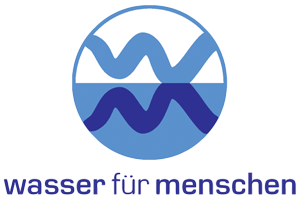WfM concentrates its activities in rural areas. In large cities the water supplies are often dominated by companies with an interest in generating profits. The countryside generally has water of dubious quality which is accessed with simple methods and much difficulty. WfM seeks to find solutions that are locally relevant.
02Creating local structures
Lack of water often leads to significant migration. On the other hand, local water difficulties are acerbated when migrants compete with local populations for water supplies. Often the local authorities are unable to deal with securing water supplies. This is why WfM builds projects that are locally grounded and function independently. The base for this is sharing know-how and financial back-up.
03Projects for women and local value creation
WfM works at the local level. We prefer to work with women’s groups as they are the representatives of the local village. Their motivation, their education, and their economic contributions are the guarantee of permanent improvement of local conditions. These women’s groups hire local craftsmen as needed. It is important for WfM that our water projects maximize local economic growth.
04Local craftspeople and local materials
Independent local projects need to rely on local productive techniques. This is why WfM prefers the development of methods that can be used to successfully manufacture products from locally available materials. The construction of cisterns to collect rainwater from locally made bricks and the manufacture of water filters from locally available clay are examples of this. Imports of technical components are avoided as much as possible.
05Regional and international networks
WfM values the local and regional networks that help to stabilize its projects. This enables projects to achieve step by step independence. An example of this is the cooperation between the waterfilter-project in Oruchinga-Valley with the Chair for Agrarian Development at Mbarara University.
WfM also shares its expertise as an NGO with other organizations. For example, we support and have supported orphanages and schools with solutions to their water problems.
06Long term commitment to our projects
WfM projects are intended to function permanently. This is why WfM does not set time limits on projects. These continue as needed even when local projects operate independently. Experience has shown that it is possible to enter into a crisis state despite many years of excellent work. At such a moment renewed support becomes necessary. By avoiding arbitrary deadlines, our projects are able to have the time necessary for optimal development. This is especially true for innovative projects such as WfM’s water filter production. Technical installations, the exchange of know-how, a well-functioning and harmonious team and product acceptance need adequate time to develop successfully.
